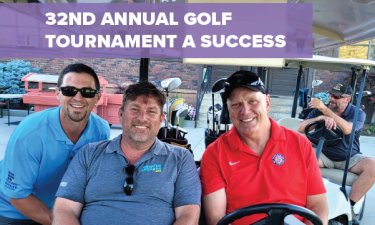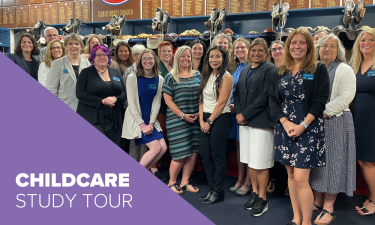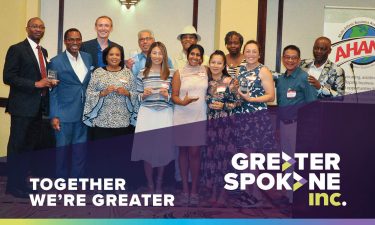The North Spokane Library is one of 19 libraries nationwide chosen to host Exploring Human Origins: What Does It Mean to Be Human? The event is a national traveling exhibit exploring the complex field of human evolution research. The exhibit opened on Tuesday, January 5 and runs through Tuesday, February 2.
While cultural and religious differences exist, the milestones in the evolutionary journey to becoming human, shape the unique position we as humans hold in the history of life. The Smithsonian’s national traveling exhibit, Exploring Human Origins: What Does It Mean to Be Human?, invites audiences to discover what we know about human evolution and how we know it. Experience more than 40 educational panels, interactive kiosks, hands-on displays, videos, 3-D skull casts, and a large bronze statue. Weighing nearly 400 pounds, the exhibit’s bronze statue is a reproduction of John Gurche’s original work, “Learning to Survive”. It depicts a curious, two-year-old Neanderthal boy watching his mother use an awl to poke holes in an animal hide.
The Library District also presents a selection of programs: from a class about what could be the next big revolution in food production and community conversations about human evolution led by Smithsonian scientists, to exploring the wonders of the modern brain and learning about Stone Age survival techniques. Discover for yourself what it means to be human.
For a list of the related programs, please visit www.scld.org/humanorigins/. The North Spokane Library located at 44 E Hawthorne Rd is open Monday–Thursday, 10am–9pm, Friday and Saturday, 10am–6pm, and Sunday, 1–5pm. The exhibit and all related programs are free and open to the public.
Exploring Human Origins: What Does It Mean to Be Human? was organized by the Smithsonian’s National Museum of Natural History in collaboration with the American Library Association Public Programs Office. This project was made possible through the support of a grant from the John Templeton Foundation and support from the Peter Buck Human Origins Fund.
By Clarissa Fidler, Communication Specialist




